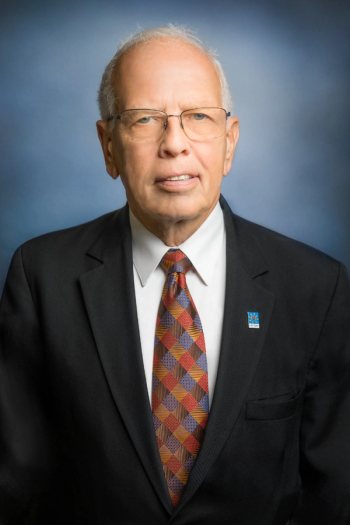
- Vol 28 No 6
- Volume 28
- Issue 6
Pharma Pipeline Report: 7 Drugs Health Execs Should Watch
Unique trends are occurring in the pharmaceutical pipeline that would have been unheard of just five years ago.
Unique trends are occurring in the pharmaceutical pipeline that would have been unheard of just five years ago. One agent coming on the market may cost up to $1 million for a one-time infusion, and a new agent derived from cannabis may be the first of many such products for a host of illnesses.
Perry Cohen, Managed Healthcare Executive editorial advisor, and CEO of the Pharmacy Group consulting firm, says some remarkable agents will be coming on the market that will significantly help individuals who previously had no treatment options.
Here, industry experts share more information about noteworthy new drugs in the pipeline.
AVXS-101 (Novartis)
- What it is: AveXis, Inc., which is a clinical-stage gene therapy company, says it is using an adenoâassociated virus vector (AAV9) containing the SMN1 transgene for the treatment of spinal muscular atrophy (SMA) infusion (one-time). The company says about 7,200 infants have SMA Type 1, which represents infants from birth to six months of age. Babies with SMA Type 1 have difficulty breathing and swallowing. They cannot sit, crawl or walk and only 8% of babies with SMA Type 1 survive to 20 months of age.
- Potential impact: All patients in the therapeutic dose cohort in the phase 1 trial were alive and event-free at 24-month follow-up. Patients observed in long-term follow-up from the phase 1 trial continued to gain strength and achieve new milestones, including two additional patients who could stand with assistance.
- Status: Orphan drug. Biologics License Application (BLA) filing possible in mid-2018 with approval in late-2018 or early-2019, according to Christopher Peterson, PharmD, director, clinical evaluation and policy, Express Scripts.
- Cost estimate: $750,000 to $1 million for the one-time infusion, according to Peterson.
AVXS-101 could be the first one-time gene replacement therapy for SMA, a disease which results in early death or lifelong disability with considerable healthcare costs. It is expected to be available in the U.S. in 2019.
Sukumar Nagendran, is chief medical officer and senior vice president of AveXis, which is developing this product. He expects to submit a request for a pre-BLA meeting with FDA by the end of June to discuss the regulatory path for AVXS-101. “We will be able to provide more guidance after the meeting minutes are received, typically approximately a month after the meeting,” says Nagendran
Epidiolex (GW Pharmaceuticals)
- What it is: Purified cannabidiol (CBD) without any psychoactive properties for adjunctive treatment of seizures associated with Lennox-Gastaut syndrome (LGS) and Dravet syndrome (DS), rare forms of epilepsy. It is an oral liquid therapy (once daily). GW Pharmaceuticals says about 18,000 patients in U.S. have LGS and 8,000 have Dravet syndrome. Lennox-Gastaut syndrome typically occurs between the ages of 3 to 5 years. Dravet syndrome affects infants. Both conditions can cause severe intellectual and developmental disabilities and early death.
- Potential impact: In clinical trials, cannabidiol was effective in lowering seizure rates in these patients.
- Status: Orphan drug with approval expected by June 27, 2018, according to Aimee Tharaldson, PharmD, senior clinical pharmacist advisor, Express Scripts.
- Cost estimate: More than $100,000 per year, according to Tharaldson.
Cannabidiol is a pharmaceutical formulation of purified cannabidiol. GW Pharmaceuticals reported in phase 3 studies that cannabidiol added to other antiepileptic therapies significantly reduced the frequency of seizures in patients with LGS and Dravet syndrome. If approved, this agent would be the first pharmaceutical formulation of purified, plant-based CBD, according to GW Pharmaceuticals This product is a cannabinoid lacking the high associated with marijuana and it would be the first in a new category of anti-epileptic drugs, according to GW Pharmaceuticals. Aimee Tharaldson, PharmD, senior clinical pharmacist advisor, Express Scripts says cannabidiol looks like a promising drug that could be a gamechanger for these patients. “There is a need for new treatment options for these patients. In three pivotal clinical studies, Epidiolex demonstrated strong efficacy in reducing seizure frequency in patients with LGS and DS,” Tharaldson says.
Larotrectinib (LOXO-101) (Loxo Oncology)
- What it is: Larotrectinib (LOXO-101) is a potent, oral and selective investigational new drug for the treatment of patients with cancers that harbor abnormalities involving the tropomyosin receptor kinases (TRKs), according to Lovo Oncology, which is developing this agent.
- Potential impact: A drug targeting a gene fusion that occurs in lung, colon, and other cancers, larotrectinib was shown to be effective in 75% of patients of all ages in clinical trials, and an even higher percentage of pediatric patients, according to study investigators at UT Southwestern’s Simmons Cancer Center.
- Status: The drug has been granted FDA fast-track consideration. It is under FDA review and a decision is expected by December 2018, according to Ted Laetsch, MD, assistant professor of pediatrics and with the Harold C. Simmons Comprehensive Cancer Center.
- Cost estimate: Unknown
Most cancer drugs are targeted to specific organs or locations in the body. Larotrectinib is the first cancer drug to receive FDA breakthrough therapy designation for patients with a specific fusion of two genes in the cancer cell, no matter what cancer type, according to Laetsch. While the TRK fusions occur in only a small percentage of common adult cancers, they occur frequently in some rare pediatric cancers, such as infantile fibrosarcoma, cellular congenital mesoblastic nephroma, and papillary thyroid cancer, says Laetsch.
“I do think this is a gamechanger,” Laetsch says. “Larotrectinib has received breakthrough designation for the treatment of patients with a TRK fusion positive solid tumor, regardless of the type of tumor in which that fusion occurs. I see this as the next big step in the development of precision medicine and molecularly targeted therapy.”
Aimovig (erenumab – Amgen/Novartis)
- What it is: A calcitonin gene-related peptide (CGRP) receptor antagonist monoclonal antibody for prevention of migraine in patients with four or more migraine days per month. It is given by subcutaneous injection monthly, according to Peterson.
- Potential impact: Research published in November 2017 in The New England Journal of Medicine reported positive results from the six-month phase 3 STRIVE study evaluating the drug versus a placebo for the prevention of episodic migraine. It found that the drug delivered clinically meaningful and statistically significant differences from placebo for all primary and secondary endpoints in a study that included 955 patients. Patients taking this agent experienced a significant reduction in mean monthly migraine days and were significantly more likely to achieve a 50% or greater reduction in monthly migraine days than those taking placebo.
- Status: Under FDA review at press time with a PDFUA date of May 17, 2018 (deadline by which the FDA must review new drug applications), according to Peterson.
- Cost estimate: Approximately $9,000 per year, according to Tharaldson.
“The new CGRP inhibitor class of medications will provide a treatment option for patients with chronic or episodic migraines,” says Christopher Peterson, PharmD, director, clinical evaluation and policy, Express Scripts. “Many of these patients are resistant or intolerant to currently available therapies. As a debilitating condition, decreasing the number of migraine days in patients with chronic or episodic migraines is an important advancement for these patients.”
Sotagliflozin (Lexicon)
- What it is: A dual SGLT1 and SGLT2 inhibitor for use in combination with insulin therapy to improve glycemic control in adults with type 1 diabetes mellitus, according to Peterson. He says the dual inhibitor of SGLT-1 and SGLT-2 can influence how the intestines and kidneys process blood sugar, respectively. It is also under investigation for treating type 2 diabetes. It is a once-daily oral therapy, according to Peterson.
- Status: This product is under FDA review with a PDUFA date of March 16, 2019, according to Peterson.
- Potential impact: Sotagliflozin has a unique mode of action that, and if approved, could potentially improve glycemic management beyond insulin alone, according to Lexicon, the company that is developing this product. It says phase 3 data with 1,402 patients with type 1 diabetes showed a benefit with sotagliflozin combined with insulin. A New Drug Application (NDA) was filed with FDA on March 26, according to Peterson.
- Cost estimate: Approximately $5,000 a year, according to Peterson.
“I would categorize this therapy as an ‘incremental improvement’ as there are many currently available therapy options for treating diabetes, including the SGLT-2 inhibitors that have a somewhat similar mechanism of action, says Peterson. However, diabetes is a large therapy class (the number two therapy class, according to Express Script’s 2017 “Drug Trend Report”) affecting about 30 million Americans. “As a result, the introduction of effective therapies within the class have the potential to achieve blockbuster status.”
Fremanezumab (Teva)
- What it is: Anti-CGRP monoclonal antibody for the prevention of chronic and high frequency episodic migraines. It is a subcutaneous therapy (monthly/quarterly), according to Tharaldson.
- Status: On December 18, 2017, Teva, which is developing this agent, announced the FDA accepted for review a biologics license application (BLA) for fremanezumab. Additionally, the FDA has granted fast track designation for fremanezumab for the prevention of cluster headache, according to Teva. At press time, it is under FDA review with a PDUFA date of June 15, 2018, according to Tharaldson. The product may be delayed due to a recent FDA warning issued to a Celltrion plant, the main active pharmaceutical ingredient supplier for this drug, according to Tharaldson.
- Potential impact: The BLA includes data from the HALO clinical trial program, which enrolled more than 2,000 patients with episodic migraine and chronic migraine. Using both quarterly and monthly dose regimens, fremanezumab demonstrated statistically significant results across all trial endpoints, according to Teva.
- Cost estimate: Approximately $9,000 a year, according to Tharaldson.
Joshua Cohen, MD, global therapeutic area lead for migraine and headache at Teva, says his team is also studying fremanezumab for the prevention of chronic and episodic cluster headache as part of the phase III ENFORCE clinical research program. “Additionally, Teva has recently initiated a fremanezumab phase 2 clinical program for the treatment of post-traumatic headache disorder,” says Cohen.
Solriamfetol (Jazz)
- What it is: Jazz says it is testing this dopamine and norepinephrine reuptake inhibitor (DNRI) for the treatment of excessive sleepiness in adult patients with narcolepsy or obstructive sleep apnea (OSA). It is a daily oral medication.
- Status: This product is under FDA review with a PDUFA date of December 20, 2018, according to Peterson.
- Potential Impact: The solriamfetol phase 3 clinical program includes one study evaluating excessive sleepiness in adult patients with narcolepsy (TONES 2), two studies evaluating excessive sleepiness in adult patients with OSA (TONES 3 and TONES 4), and an open-label, long-term safety and maintenance of efficacy study (TONES 5) in the treatment of excessive sleepiness in patients with narcolepsy or OSA. The company says solriamfetol significantly improves wakefulness in patients with obstructive sleep apnea who suffer from excessive sleepiness.
- Cost estimate: $10,000 per year of therapy, according to Peterson.
Jed Black, MD, senior vice president of sleep medicine at Jazz Pharmaceuticals and an adjunct professor, Stanford University Medical Center, Stanford Center for Sleep Sciences and Medicine, says Jazz expects to launch solriamfetol in the U.S. in the first quarter of 2019.
“We believe solriamfetol will provide a meaningful option for patients living with excessive sleepiness due to narcolepsy or OSA once approved,” says Black.
John Schieszer, MA, is an award-winning national journalist and radio and podcast broadcaster of “The Medical Minute.” He also produces the Managed Healthcare Executive podcast, “News You Should Know.”
Articles in this issue
over 7 years ago
Managed Care Pharmacy Survey 2018over 7 years ago
Top Autoimmune Disease Treatment Developments to Watchover 7 years ago
Three Pharmacy Regulations Health Execs Should Watchover 7 years ago
How to Rein in Skyrocketing Orphan Drug Costsover 7 years ago
Right to Try Pros and Consover 7 years ago
Managed Care Pharmacy’s Future: What Health Execs Should Knowalmost 8 years ago
How Payers are Responding to Growing Orphan Drug Costsalmost 8 years ago
Top Cost Considerations for CAR-T, CRISPR Cancer Treatmentalmost 8 years ago
Four Ways to Spur Innovation at Your Managed Care OrganizationNewsletter
Get the latest industry news, event updates, and more from Managed healthcare Executive.























